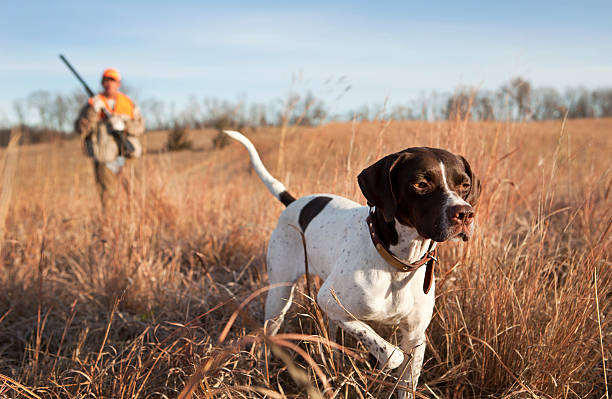
Preparing your Working Dogs for Hunting Seasons
Share
Prepping dogs for hunting season involves building their physical fitness, sharpening their skills, and ensuring their overall health. Here are some tailored suggestions to keep your dog’s safe and injury-free:
Physical Conditioning:
- Gradual Exercise Build-Up: Start with short, moderate sessions of running, swimming, or hiking to strengthen muscles and improve endurance. Gradually increase intensity and duration as their fitness improves.
- Paw Care: Toughen their paw pads with controlled outdoor activity on various surfaces to prevent abrasions or injuries during hunts.
- Weight Management: Ensure the dog maintains an optimal weight. Overweight dogs are more prone to injury and fatigue.
Skill Training:
- Retrieval and Carry: Practice retrieving game dummies to strengthen their jaws and neck muscles. Use real terrain and scenarios to mimic hunting conditions.
- Obedience: Reinforce basic commands like “sit,” “stay,” “heel,” and “come.” These can prevent dogs from wandering into unsafe areas.
- Tracking Practice: Teach scent tracking in areas with natural distractions. Start easy and gradually increase complexity.
Health and Veterinary Care:
- Health Check-Up: Schedule a veterinary appointment for bloodwork, vaccinations, and overall health assessment. Screening for conditions like parasites is essential.
- Nutrition: Feed a high-quality, balanced diet rich in protein, fat, and essential vitamins to meet their energy demands during hunting season.
- Hydration: Ensure access to clean water during training and hunts to prevent dehydration.
- Preventative Care: Apply flea, tick, and heartworm preventatives as these pests can be abundant in hunting environments.
Safety During Training & Hunting:
- Stretching and Warm-Up: Warm up muscles before intense exercise to reduce the risk of strains. After activity, let them cool down gradually.
- Protective Gear: Consider protective vests for dogs when hunting in thick brush or cold weather to shield them from injury.
- Weather Awareness: Avoid overexertion in extreme heat or cold to prevent dehydration or frostbite.
- Rest Between Hunts: Ensure dogs get adequate recovery time to avoid fatigue or muscle damage.
Monitoring & Post-Hunting Recovery:
- Check for Injuries: After each session, inspect paws, ears, and the body for cuts or ticks.
- Muscle Care: Provide massages or therapeutic exercises to relieve stiffness.
- Hydration and Food: Rehydrate your dog and feed them easily digestible, nutrient-rich food to support recovery.
By combining fitness, skill training, and health care, your dogs will be ready for a safe and successful hunting season.
